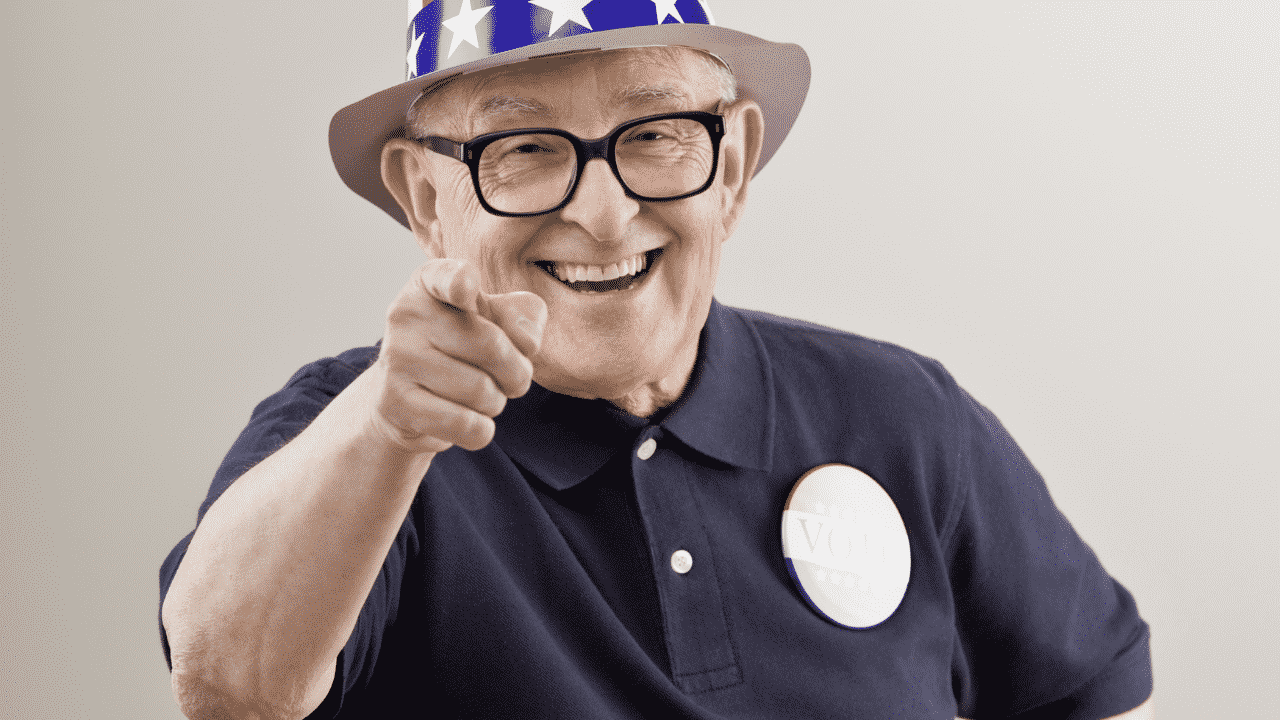A few weeks ago, I received an email from a listener:
“Hello, Dr. Regina,
“I work in an assisted living facility. As the election approaches, family members of residents on memory care units have asked to have residents vote. Residents on this unit are here because they’re unable to make informed decisions and don’t have a grasp on reality. Also, the particular resident shows no interest in wanting to vote. It’s the family that essentially wants to cast a vote for the individual, which seems unethical to me. I’ve tried reaching out to professional groups for some guidance to no avail.
Do you have any thoughts regarding this topic?”
Older adults tend to vote more often and more consistently than other age groups. According to a US News Report, in 2018, 64% of adults age 65 and older voted in the November 2018 election, the best turnout of any age group. With this said, 10% of older adults, however, will experience a cognitive disorder, including a dementia disorder. It makes sense that the listener was asking the questions:
Can people with dementia vote?
Can people with dementia needing 24/7 care and supervision vote?
Since this is such an important topic affecting people’s rights, I invited a national expert, Jennifer Mathis, Director of Policy and Legal Advocacy of the Judge David L. Bazelon Center for Mental Health Law, on the podcast to answer all of our FAQs about dementia and voting.
Here’s a sneak peek inside my interview with Jennifer Mathis:
- [07:41] There’s a long history of voter suppression in Long Term Care Communities. Learn about this history and what we can do about it.
- [11:24] Jennifer discusses the history of voting fraud in the form of throwing out ballots of voters in the hospital.
- [15:54] Jennifer answers the question: “If my wife always voted Republican for all of her life. And I know that she would vote Republican now, can I mark Republican on the ballot for her?”
- [18:41] Jennifer describes the standards for voting capacity and reminds us that we have to apply the same standards to everyone.
- [24:38] Practically speaking: how do you help someone with dementia vote? We discuss this here.
- [28:22] What if the person with dementia has a legal guardian appointed by a court, can this person vote? Can the guardian vote for them?
- [39:19] Clinicians and long term care staff beware! You may think you know how to determine voting capacity, but chances are, you’re not using the right set of standards. Mickey Mouse may not be an unacceptable candidate after all.
- [51:59] There are many resources to guide families and long term care communities in helping people with dementia to vote. Learn about them here.
Jennifer Mathis is Director of Policy and Legal Advocacy at the Bazelon Center for Mental Health Law. The Center is a national nonprofit legal advocacy organization that represents individuals with mental disabilities. Jennifer uses litigation, policy advocacy, technical assistance and training to advance equal opportunity for individuals with mental disabilities in all areas of life, including health care, employment, voting, education, housing, community living, and family and parental rights. She has litigated voting rights cases and successfully advocated for changes in state voting laws.
FAQs About Dementia and Voting
With older adults being more likely to vote than any other age group and dementia affecting older adults more than any other age group, questions about dementia and voting naturally arise! Can people with dementia vote?
Like most things related to voting, there’s concern and controversy. Everything from personal opinions from caregivers, like: “This is SO wrong!!! My mom doesn’t know who I am or who other family members are and you want her to vote for someone she doesn’t know?” Or, psychiatrists in 2005, who attempted to create a Doe Voting Capacity Standard, which required more reasoning and rationale than the average voter would be required to have to demonstrate, which can lead to voter suppression.
With so many questions and concerns it helps to have a set of guidelines and standards.
The American Bar Association’s Commission on Law and Aging & the Penn Memory Center recently put together a guide on helping people with cognitive impairment to vote. They explain that a medical diagnosis, like Alzheimer’s Disease does not disqualify someone from voting, rather, that we must ask if people wish to vote and if they do, we must assist them. They explain:
“Capacity to vote is much like the capacity to ride a bicycle, which can be determined accurately only by allowing the individual to mount a bike and start pedaling. If capacity is lacking, the task just won’t be completed.”
How is a person’s capacity to vote determined?
Voting capacity is determined by each state, and while some states have laws forbidding people who have been assigned a legal guardian to vote, many states do not impose voting capacity standards. Federal law, however, entitles voters with disabilities to vote and to receive assistance with voting if and when needed.
Who can help a person with dementia vote?
A poll worker, friend, family member, caregiver, assisted living facility worker, or almost anyone else save an employer or union officer (if the voter is a member of a union).
What can you do to help?
If you are assisting a person with dementia with voting, knowing these communication skills will increase the chances of having a successful voting experience:
- Listen carefully to what the person is saying (verbally & non-verbally). Depending on the stage of dementia, some conversations may take longer than others. Really make an effort to listen and be patient.
- Speak clearly & respectfully. Use your regular tone of voice. Studies show, when we use “baby talk” or “elder speak”, the person with dementia behaves differently. Speak clearly and slowly. Also, consider shortening your sentences. It’s harder to process longer sentences. The clearer and simpler you’re questions, the easier they’ll be to understand.
- Get the person’s attention BEFORE you communicate with them. Eye contact and gentle touch can help to ground and orient a person with dementia. Getting the person’s attention before asking them to vote will help them to demonstrate their true ability to vote.
- Have the conversation about voting during the person’s BEST time of day. People with dementia times of the day when they are at their best, just like you and I do. Try to have a conversation about voting during their most optimal time of day.
- Make sure you understand what the person is saying. If you don’t understand, ask them to point or gesture.
Do’s and Don’ts of Dementia and Voting
The Bazelon Center for Mental Health Law and the National Disability Rights Network offer a guide when it comes to assisting people with diminished capacity to vote. They explain that voters may have assistance if needed. For example:
- Read the ballot in a way that the voter can understand
- Never express your opinion
- You may not withhold information or give inaccurate information
- Don’t pressure the person to vote on every item. If the person tires or wishes not to vote on all of the items on the ballot that is fine. Everyone has the right to choose whether or not they vote on each contest.
A common question that arises for caregivers is: “if my spouse has voted Republican for the past 50 years, and I’m confident that she would vote Republican now, can I select this candidate for her?” The answer is no. However, if the wife was given an option and verbally (or non-verbally with a gesture) selected the Republican candidate, then the helper can assist in marking the ballot. Make sense?
To learn more about voting and if you need assistance, you can call Election Protection at 1-866-OUR-VOTE (1-866-687-8683)
Bottom line: Many people with dementia can vote and are entitled to assistance.
Resources mentioned in this episode:
- Assisting Cognitively Impaired Individuals with Voting, prepared by the American Bar Association Commission on Law and Aging & the Penn Memory Center
- Resources from the Bazelon Center for Mental Health Law:





